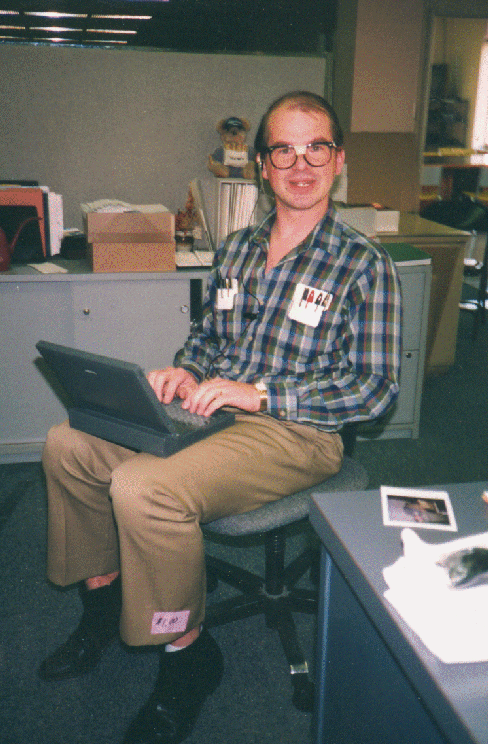Am I missing something, or are engineering and environmental firms way behind in the use of technology to improve their businesses? In 2011, entrepreneur and venture investor Mark Andreessen posted an essay titled “Why Software is Eating the World.” The essay discusses how companies like Amazon.com are dominating traditional businesses like Borders and that for the foreseeable future, software-based companies are going to change the way the entire world works.
This article is proving to be true, and the message is just as relevant today as it was in 2011. Companies like Uber and Airbnb are dramatically changing the way we function in the world. So why have engineering and environmental firms not kept up pace?
It seems logical to expect that engineers would be on the forefront of using the latest and greatest technology in every aspect of their company to improve efficiency and cost-effectiveness. But, in my experience, that isn’t the case. In fact, it appears to be the opposite. Engineering firms have been incredibly conservative about embracing change and technology, often continuing to do things “the way we’ve always done it.”
This is not going to last for long. If you haven’t read the book The Third Wave by Steve Case, founder of AOL, I suggest you check it out. What is the Third Wave? The First Wave was the Agricultural Revolution. The Second Wave was the Industrial Revolution. The Third Wave is the Information Age, and we’re still in the early stages. Web 1.0 consisted of building static pages and websites. Web 2.0 included online stores and improved efficiencies such as Amazon.com. Web 3.0 will be the connection of everyone, a dynamic sharing economy, and rapidly accelerating efficiencies. Companies like Uber already are recreating how significant parts of the economy operate. EVERYTHING will be Uberized.
In addition, sensors will be placed in every device or product you can imagine. These sensors will be connected to the Internet. And, the amazing amount of information collected from these sensors will lead to endless business possibilities. Imagine, for example, that your “connected” contact lenses instantaneously scan the food you’re about to eat and tell you if the meal is within your calorie goals for the day. Your clothes have tiny micro sensors throughout, which track every conceivable detail about your health and fitness in real time. If any signs of health concerns are detected, your “smart clothes” immediately connect with your doctor and a vast database of healthcare knowledge, and suggests a remedy to correct the issue before it even comes close to becoming a problem.
This type of connectivity may sound scary to some people, but it’s on the way. To build a business with this kind of complexity sounds like way too much to ever consider. However, it won’t require someone to build the whole thing. Every business will be an interconnection of many smaller businesses that work together, all doing their small part. Building a businesses that fits into this jigsaw puzzle won’t necessarily require millions of dollars. For example, my daughter’s boyfriend and a couple other guys recently rigged a big rubber duck with sensors and cranked out some software that allows the duck to float around a lake and monitor all the environmental conditions in real time. (Apparently, the United Kingdom government already is in discussions to purchase the technology from them!) This type of technology could work in conjunction with all sorts of businesses and government projects to clean up streams, lakes, and oceans around the world.
So what’s going on with engineering and environmental businesses? Why are we behind when it comes to technology? My guess is the perfectionism and risk aversion of us engineers and scientists. Our job is to keep our clients safe, design things that are safe, and generally keep things from blowing up. This leads to a mentality that is slow to change. If we know something works, that is safe. Doing things the way we’ve always done them is safe. However, if you consider companies like Kodak, you’ll see that, eventually, not changing will kill you. Their engineers invented the digital camera. However, they feared it would cannibalize their film business, so they didn’t pursue it – leading to their bankruptcy.
So what technological changes are happening in the engineering and environmental world? I’d love to hear of anything interesting that you know of. As for myself, I’ve spent 25 years in the environmental due diligence business. Now I’m now leading a company called Blue222 (blue222.com). We’re “Uberizing” the business of Phase Is and other due diligence services. The system makes it quick and easy to search for, review, and hire independent environmental contractors all over the country – when and where you need them. The system also makes it easy for independent environmental contractors to sign up and receive work from larger firms and banks.
Why is it important to Uberize the industry? Because there is a tremendous amount of INEFFICIENCY. I see so many independent environmental contractors running themselves ragged, accepting jobs all over the country and traveling constantly, just to make ends meet. Wouldn’t it be nice if all of that work was distributed evenly? In other words, if it was easy for hiring firms and banks to find the best quality independent consultants in a location close to each of their job sites, travels costs would go down dramatically, and the independent consultants would make a lot more money with a lot less work hours.
I firmly believe that these changes are inevitable in every industry. Over the next 20 years, we’ll see the Uberization of everything that can be Uberized. I’m excited to be on the forefront of it in our industry and look forward to seeing how we can make everyone’s jobs easier and more profitable!
Alan R. Grosheider
CEO, Blue222

